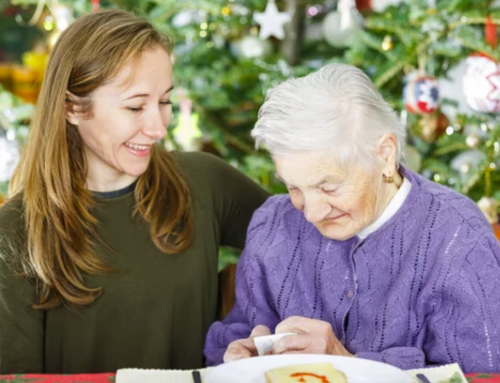Taking on the role of a caregiver for a loved one in hospice is a journey of deep compassion and commitment. At Smoky Mountain Home Health and Hospice, we honor your dedication. This path, filled with profound experiences, also comes with its share of emotional challenges. Managing emotional stress is an integral part of this process, critical not only for your own well-being but also for providing the best care for your loved one.
Recognizing Caregiver Stress: Early Warning Signs
Recognizing Caregiver Stress: Early Warning Signs
Caregiver stress often appears as fatigue, emotional strain, or even a sense of being overwhelmed. Recognizing these signs early is a key step in effectively managing emotional stress. This awareness empowers caregivers to actively seek the support they need, whether through professional counseling, peer support groups, or wellness activities. Proactively addressing emotional stress is essential, as it not only helps caregivers maintain their own well-being but also ensures they can provide the best possible care to their loved ones.
Strategies for Managing Emotional Stress
Strategies for Managing Emotional Stress
Prioritizing Self-Care: Taking care of yourself is essential. Getting enough rest, eating well, and finding time for activities that refresh you are crucial. This self-care is the foundation of your ability to care for others.
Setting Realistic Boundaries: Understanding your limits is important. Additionally, balancing caregiving duties with other responsibilities in your life helps maintain your health and prevents burnout. Thus, setting boundaries is a practical and necessary step.
Staying Informed: Having information about your loved one’s condition and the hospice process can help lessen anxiety. Feeling informed and prepared is important in handling the demands of caregiving. See our Resources page for more topics and help.
Mindfulness and Relaxation Techniques: Simple practices like meditation and deep breathing can greatly reduce stress and improve your mental well-being. By regularly dedicating time to these practices, you can build a strong foundation for emotional resilience, ensuring that managing emotional stress becomes a sustainable part of your caregiving routine.
Expressing Yourself Creatively: Finding creative ways to express your emotions, like through writing or art, provides a therapeutic outlet. These activities help you process your experiences and find comfort.
Seeking Professional Support: Talking with a counselor or therapist can be very helpful. They provide a space to discuss your feelings and challenges and offer supportive guidance.
Resources Available for Caregivers
Resources Available for Caregivers
Our Team’s Support: At Smoky Mountain Home Health and Hospice, we provide counseling, educational materials, and personal guidance. In addition, we are here to support you in every step of your caregiving journey. Contact us HERE.
Connecting with Local Support Groups: Joining local support groups can be a source of comfort and insight. Sharing experiences with others in similar situations provides a sense of community and understanding.
Books and Literature for Guidance: Reading books about caregiving can provide helpful insights and tips. For example, books like “The Conscious Caregiver” by Linda Abbit and “The Caregiving Season” offer practical advice and emotional support.
Using Digital Tools for Relaxation: Apps such as Headspace or Calm offer guided meditation and relaxation exercises. These tools are easy to use and can be a helpful way to incorporate stress-reduction practices into your daily life.
Embracing Your Journey as a Caregiver: Final Thoughts and Support
Embracing Your Journey as a Caregiver: Final Thoughts and Support
In conclusion, your role as a caregiver is deeply valued. At Smoky Mountain Home Health and Hospice, we are committed to supporting you throughout this experience. Not only does looking after your emotional health help you, but it also benefits the person you’re caring for. Lastly, you’re an important part of our community, and we ensure you have the support and resources you need. If you are in need of additional support or guidance, contact us today.






